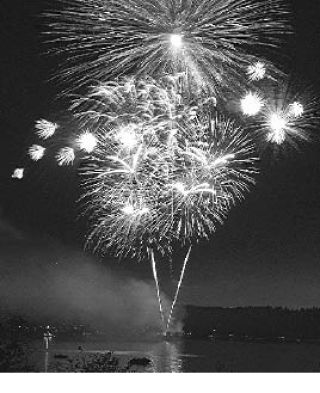Traditions are important. The things we do as each year follows another can be the ties that bind families, organizations, cultures and nations, to name a few possibilities. In a world that more and more crosses national boundaries, where people live in places they were not born, traditions can be strengths that hold one’s roots. They can be shared experiences that cross all national, racial and cultural boundaries and bring people together in celebrations of human ethos.
We can all remember the songs, smells or voices rising from past traditional gatherings. All of us know what it is like to say, or at least feel, that something must be done at a particular time, because “we’ve always done it that way.” It is a part of life, to remember, and life is precious.
Sometimes, we need to step back from tradition and ask ourselves if the way we choose to celebrate honors the celebration. Looking at each of the many actions that make up a tradition can be healing. It can be freeing. It can make the tradition fall more closely in line with what we really believe about our place on this earth.
One of my friends, whose daughter was a vegetarian, realigned the Seder meal. All the words remained the same, and the songs were unchanged. But on the Seder plate, where the roasted lamb shank usually lay, was a beet. This mother cared deeply about her daughter’s choice of lifestyle, and rather than ostracizing her or laying deep guilt upon her head, she used the juice of a beet to symbolize the blood that saved the Hebrew peoples when the Angel of Death passed over.
Rather than cutting trees at Christmas, many of us choose to buy a live tree and plant it to help heal the earth. Children’s birthdays, weddings and bar- and bat-mitzvahs have become places where the gifts, traditionally given to the honored guests, are instead given to feed the hungry or cover the homeless with warm blankets. All these changes, and countless others, make tradition deeper and more meaningful.
Traditions, with few exceptions, are usually landed in our laps without our going out to find them. We can find ourselves deep in the midst of celebration before we realize that we are uncomfortable with our choice of means. Often, we are loathe to question something for fear of seeming rude. But questioning the way we do something is not necessarily questioning the why.
The yearly fireworks display on inner Quartermaster Harbor was dropped into our laps by a man who wanted to celebrate the blessings of this country we call America. He wanted to share that energy with the community in which he lived. It was, financially and in concept, a generous gift. In the years since — and may I point out that they have been few, if not memorable years — the fireworks grew into an Island tradition. But have we examined the results? Have we asked ourselves as a community if this is the best way to celebrate freedom? Have we, with sincere honesty, faced the consequences of our half-hour of professional pyrotechnics? I do not believe so.
There are residents of Vashon who spend the Fourth of July hidden away in dark rooms in their homes, recalling in vivid detail the atrocities of war they witnessed. There are family pets that must be drugged and that still tremble in fear as the bombs burst in the air. There are livestock that cannot be kept in a building for fear they might hurt themselves trying to escape the terror they cannot understand.
Every year, animals are lost and injured, some never returning to their human caretakers. And there are innumerable wild creatures, which on the other 364 days of the year we claim we treasure as a valuable part of our Island identity.
These animals and birds and sea creatures are left to cope with what must be unspeakable horror, running and flying and swimming from their nests at this tender time of year when babies are being born. Is this an honorable way to celebrate our freedom? Are we even thinking about what that freedom means?
Vashon is a place not only of great financial wealth, but also of great poverty. (See Emma Amiad’s column in the June 25 issue of The Beachcomber.) When Tom Stewart left, Island businesses took up the sponsorship of a fireworks show, the thinking being we could not do without. I pose the idea that it is unconscionable to spend tens of thousands of dollars on 30 minutes of fireworks when our neighbors are hungry, struggling to make ends meet or homeless. How much better to give that money to the Interfaith Council on Homelessness? Build “Freedom House” so people don’t have to sleep in the rain. And stop frightening the beautiful wild creation we say we cherish.
It is time to reassess our freedom and the traditions with which we celebrate it and make things align more closely with the spirit of our community. If we do not, I fear the spirit of our community could just possibly die.
— Debbie Butler is a longtime Island resident who owns a small farm in Dockton.



